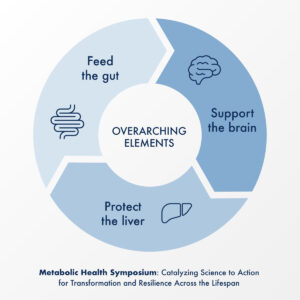Modern medicine, a system originally designed to fix acute health care problems, now creates more chronic health care problems than helping to solve them. I see the dangers of over-testing and over-prescribing taking place each day in my day-to-day pediatric clinical practice. It scares me to see how many doctors reflexively prescribe pills designed to merely mask symptoms, rather than take time to understand the underlying cause, or that most chronic diseases are reversible through healthy lifestyle and nutrition. Nowhere is this more evident than the change in the landscape of pediatric health care in the three decades since I went to medical school.
I didn’t go into pediatrics expecting to treat adult diseases. But this is exactly what now makes up much of my practice! How did it become that children now get fatty livers, gallbladder problems, and type 2 diabetes, before they even graduate high school? And all we have to offer them is surgery and medication?
I wonder how it gets to this point, that healthcare has failed our kids so badly. If a child has constipation, I’m trained to prescribe laxatives. If kids complain of heartburn, doctors will often prescribe acid-blockers. When children complain of chronic head, joint, or body aches, we recommend pain killers. Infants are now prescribed strong medications for spitting up, equating their regurgitations with adult heartburn and reflux. Older children are being diagnosed with hypertension, ADHD, sleep disorders, anxiety at alarming rates, and then suffering the consequences of the side-effects of the polypharmacy that we prescribe. Kids are medicated more than ever before. If one drug doesn’t work, we suggest trying another. If a pill fails, we try an injection, and if that fails, we try invasive procedures and surgeries followed by even stronger medications.
Let’s face it, doctors are trained to be pill-pushers. Tell us your symptoms – we will medicate you. We love prescribing medications, which essentially work like applying band-aids to external symptoms because we don’t understand how to prevent, treat, or reverse chronic disease. We simply don’t understand diet and lifestyle intervention. We were never taught this in medical school. Conventional medical school training still follows the outdated acute illness paradigm: the traditional healthcare model that worked great for short-term problems like broken bones and acute appendicitis. Unfortunately, applying the test and treat model is making us all sicker. Current healthcare statistics reveal:
- Chronic diseases cause 71% of global deaths;
- Only 12% of Americans are metabolically healthy;
- Americans are taking more prescriptions than ever;
- Already, a quarter of the world’s adult population has metabolic syndrome and this condition is appearing with increasing frequency in children and adolescents;
- Today’s children are the first generation predicted to have a shorter life expectancy than their parents; and
- Chronic disease spending accounts for 86% of healthcare costs.
To promote awareness of the pitfalls of the traditional healthcare model, doctors need better education. That’s precisely why Swedish Medical Center in Seattle, WA is hosting its third in a series of continuing medical education conferences, where world-renowned experts will provide state-of-the-art education around disease prevention through diet and lifestyle aimed at reversing metabolic syndrome. We will present and teach everyday healthcare practitioners how to reverse the tide against the onslaught of chronic disease.
The 3-day agenda is based upon the “Metabolic Matrix” paradigm, which in turn was inspired by pediatric neuroendocrinologist, Dr. Robert H. Lustig’s recent book, Metabolical. In Metabolical, he shows us that the “key to understanding chronic disease is that there are not four separate problems – nutrition, metabolism, inflammation, immunity; there’s only one, but they are all related.”
Day one starts us off with state-of-the-art lectures on hepatology, gastroenterology, and then covers the link between farming practices and human disease. Day two will focus on the epidemic of “diabesity”, where experts will discuss diet, the microbiome, oral health, and cardiology, showcasing strong voices, both international and local, on politics, governments, and health advocacy. Day three will shift to brain health, where we will hear from amazing clinicians, researchers, and scientists incorporating diet and lifestyle into treating both adult and childhood mental health disorders from ADHD and addiction to Parkinson’s and dementia.
We healthcare professionals want to do right by our patients and realize that much of what we learn during traditional medical school is outdated, aimed towards acute care, and doesn’t serve our patients well in the long run. Even worse, our treatments may actually cause harm and be part of this epidemic of chronic disease that now plagues even the most vulnerable, our children.
We can and must do better. With proper education, we will.


